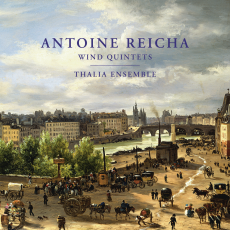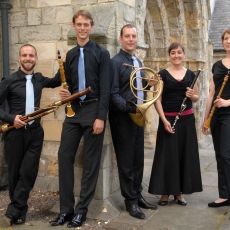Thalia Ensemble - Reicha: Wind Quintets - The Arts Desk
Antoine Reicha's influence has been more potent than his music. Born in Prague in 1770, his career took in spells based in Hamburg, Vienna and Paris. He was a close friend of Beethoven and his composition pupils included Liszt, Berlioz and Franck. And, unless you're a wind player, you probably won't have heard of him. Nielsen's Quintet is almost a repertory work, but Reicha's 24 wind quintets, much loved by those who've blasted through them, remain concert hall rarities. A flautist, Reicha believed that there was "a dearth of good music for wind instruments" and wanted to give them a body of work as substantial as that available to string players. His quintets, mostly written for the same group of individual players, aren't profound music, but they're great fun. Reicha knew firsthand what each instrument was capable of, the music's technical demands evolving in tandem with the development of the instruments: valves began to appear on natural horns and mechanical keys enabled greater flexibility on flutes and clarinets.
The youthful Thalia Ensemble gives us two of the quintets, dating from 1818 and 1821. Hearing these pieces played on period instruments brings them to vivid life; Reicha's perky flute and oboe lines ring out with pleasing clarity, and the bassoon's bass lines have plenty of wheezy bite. What on paper might look like bland classical noodling sounds witty and colourful. The B flat Quintet's first movement is a case in point, the fast section kicking off with a delectable bassoon solo before the chugging quavers begin. The earlier G major Quintet's Andante has a Mozartian elegance. Reicha's oboist Gustave Vogt was a renowned cor anglais player, and we get as a bonus an attractive operatic slow movement written for him. It's beautifully performed here by Sarah Aßmann. Reicha died in Paris in 1836, his wind music falling out of popularity as the instruments continued to be upgraded. Do your bit for Reicha, and kick-start his revival by buying this charming disc.

